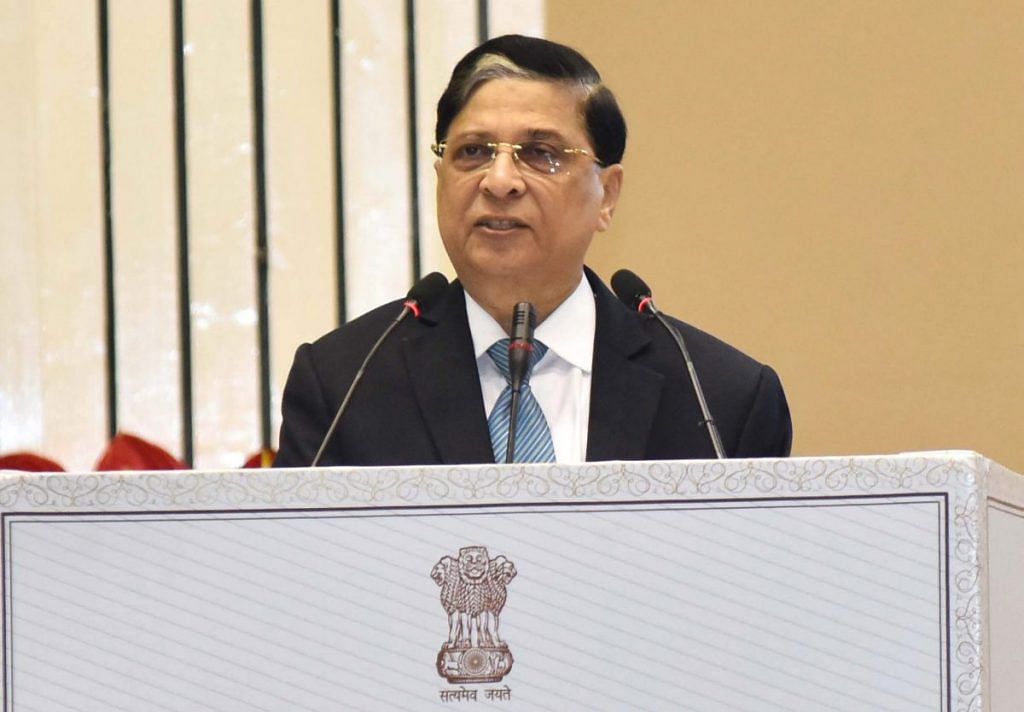The motion of impeachment against the Chief Justice of India, Dipak Misra, was moved by opposition parties led by Congress on Friday.
New Delhi: Rajya Sabha Chairman M Venkaiah Naidu today rejected the notice given by opposition parties led by the Congress for impeachment of CJI Dipak Misra citing lack of substantial merit in it, sources said.
Naidu held extensive consultations with top legal and constitutional experts before taking the decision, they said.
The rejection of the notice comes a day after he held the consultations with such experts to determine the maintainability of the motion.
The sources said Vice President Naidu met several experts after he re-scheduled his travel plans considering the seriousness of the matter.
Seven opposition parties led by the Congress had last week moved a notice before him for impeachment of the Chief Justice of India (CJI) on five grounds of “misbehaviour”.
This is the first time ever that an impeachment notice has been filed against a sitting CJI.
Opposition leaders said the motion had been moved because “his conduct is unbecoming of a person holding the office” of Chief Justice of India.
Senior Congress leader Ghulam Nabi Azad told a press conference that the impeachment motion had been moved on “five grounds of misbehaviour.”
The impeachment motion lists the following five allegations against Misra:
- The facts and circumstances relating to the Prasad Educational Trust case show prima facie evidence suggesting that Chief Justice Dipak Misra may have been involved in the conspiracy of paying illegal gratification, which at least warrants a thorough investigation.
- That Chief Justice Dipak Misra dealt, on the administrative as well as judicial side, with a writ petition which sought investigation into a matter in which he too was likely to fall within the scope of investigation since he had presided over every bench which had dealt with the case and passed orders in the case of Prasad Educational Trust, and thus violated the first principle of the Code of Conduct for judges.
- That Chief Justice Dipak Misra appears to have antedated an administrative order dated 6 November 2017, which amounts to a serious act of forgery/fabrication.
- That Chief Justice Dipak Misra acquired land when he was an advocate, by giving an affidavit that was found to be false and, despite the orders of the ADM cancelling the allotment in 1985, surrendered the said land only in 2012 after he was elevated to the Supreme Court.
- That Chief Justice Dipak Misra has abused his administrative authority as master of roster to arbitrarily assign individual cases of particular advocates in politically sensitive cases to select judges in order to achieve a predetermined outcome.
-With inputs from PTI
